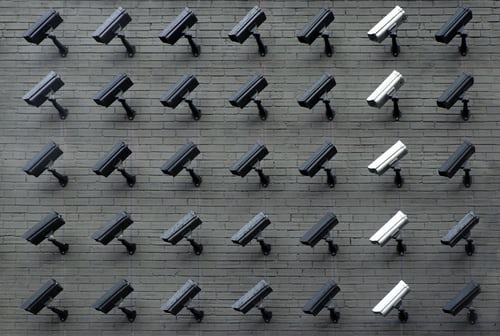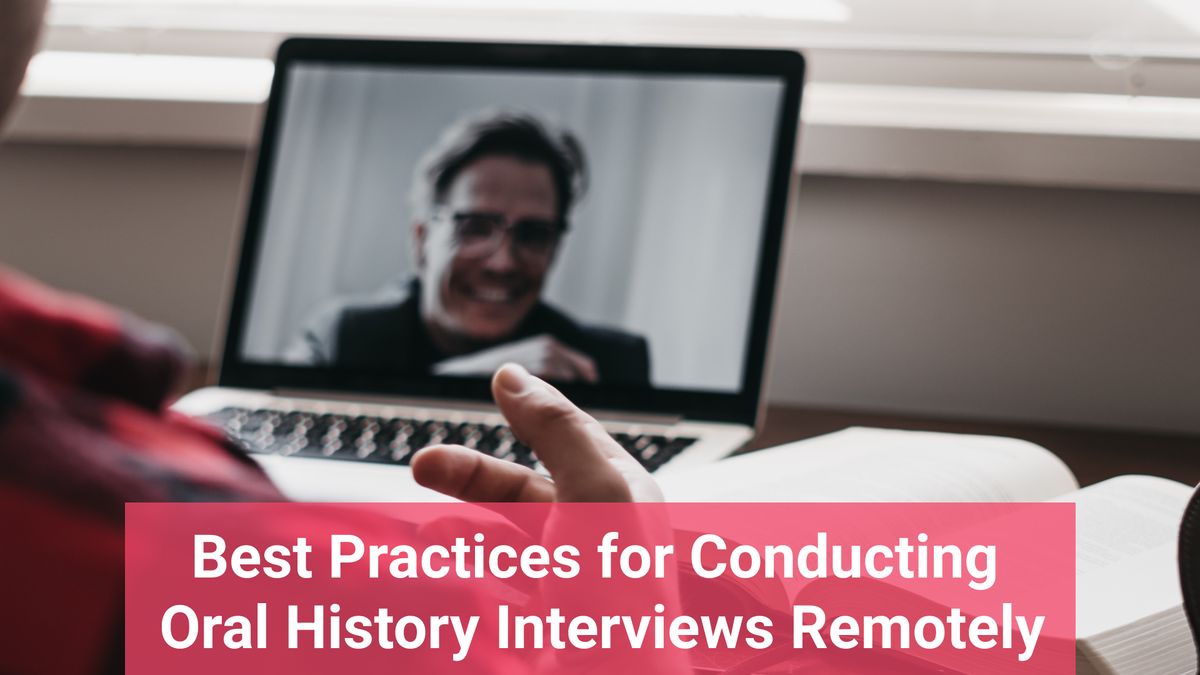In an era of physical and social distancing, what are some of the best practices for conducting oral history interviews remotely?
From insights, talking to oral historians and transcribing their interviews (if you’d like us to transcribe your oral history interviews for you, get in touch) in the past year, we’ll coalesce our recommendations around four core topics: recruitment, privacy and consent, technology, and conducting the interview.
Recruitment

One of the numerous advantages of conducting oral history interviews remotely for you and your participants is that it eliminate the need for travel to a central location.
However, as technology is involved, the key is to ensure that you eliminate barriers to participation, giving due consideration to contextual limitations.
It’s inevitable that a strictly remote study methodology will exclude participants that are least digitally equipped. However, researchers should make an effort to make sure that they recruit a varied and broad spectrum of participants as possible.
To achieve these, here are a couple of recommendations.
- Resist the temptation to use a single recruitment channel, especially one that is suited to you. Social media is a great way to recruit study participants, but don’t underestimate the value of word of mouth and snowball sampling. Also pay emphasis to off-line recruitment methods, for instance local newspapers, TV, and Radio stations.
- Schedule a call with potential study participants with the aim of building rapport and building trust. It’s important to alleviating participant’s fears by adopting a clear and trustworthy communication about the nature of the study and the interview.
Privacy and Consent
Although some local institutional review board (IRB) procedures may have changed in response to COVID-19, qualitative research projects with human participants still require IRB review for determination of exempt status or formal approval.

Researchers should obtain IRB approval to record the audio from the oral history interview if a recording is desired.
Ideally, you’ll also want your study participants to sign a consent form before conducting the interview and there are numerous online tools and services that will enable your study participants to electronically sign the consent form.
However, I do recommend that you check your institution or organization and see if they have a platform in place for online document signing. Also offer alternatives ways for you to record consent. You can get and record verbal consent at the beginning of your interviews.
Technology

When conducting online oral history interviews, researchers may gravitate to traditional approaches to selecting a platform that best suits their needs. One might consider what software their organization/institution avails and how it integrates with other virtual tools, among other factors.
While such selection criteria might lead you to a platform that is best suited for you, we suggest that oral historians go for a platform selection approach that centers on the participants. A golden rule is to try as much as possible to meet participants where they already are, that is, in the platforms that they already use and are familiar with.
Researchers should also be ready to use multiple technologies and platforms. Some of your participants might be more comfortable with Zoom or Skype, while others gravitate towards FaceTime or WhatsApp.
You’ll need to offer tech support, and minimize the burden of technology on the participant. You may be lucky and your participant will have someone, (partner/spouse or relative), who can offer them tech support. Get in touch with third parties and get their cooperation.
Also be prepared to create “how to guides” and teach your participants how to use the online platform you’ll use for the interview. And as always, have a backup plan and alternatives.
During the Interview

More than in-person interview, you will need to set aside adequate time to “break the ice” before you start your interview.
Plan to spend at least 15 minutes solving technological issues and addressing your participant’s queries. And, spend time going through a checklist of best practices (e.g., shutting down other applications, silencing phones, choosing a quiet place) with your study participants. Ideally, you should’ve sent them advance preliminary instructions.
Finally, you should be cognizant of the ways in which remote interview differ from in person interview and try and engage your participants and to replicate that human connection online. That’s why we recommend using a video call platform as it gives you visual cues that lack in an audio only interaction.
Using common sense approach that tailors remote video-interviews according to your participants’ needs and ICT skills are the key aspects to consider when designing a remote oral history study.
That’s it for this post…
